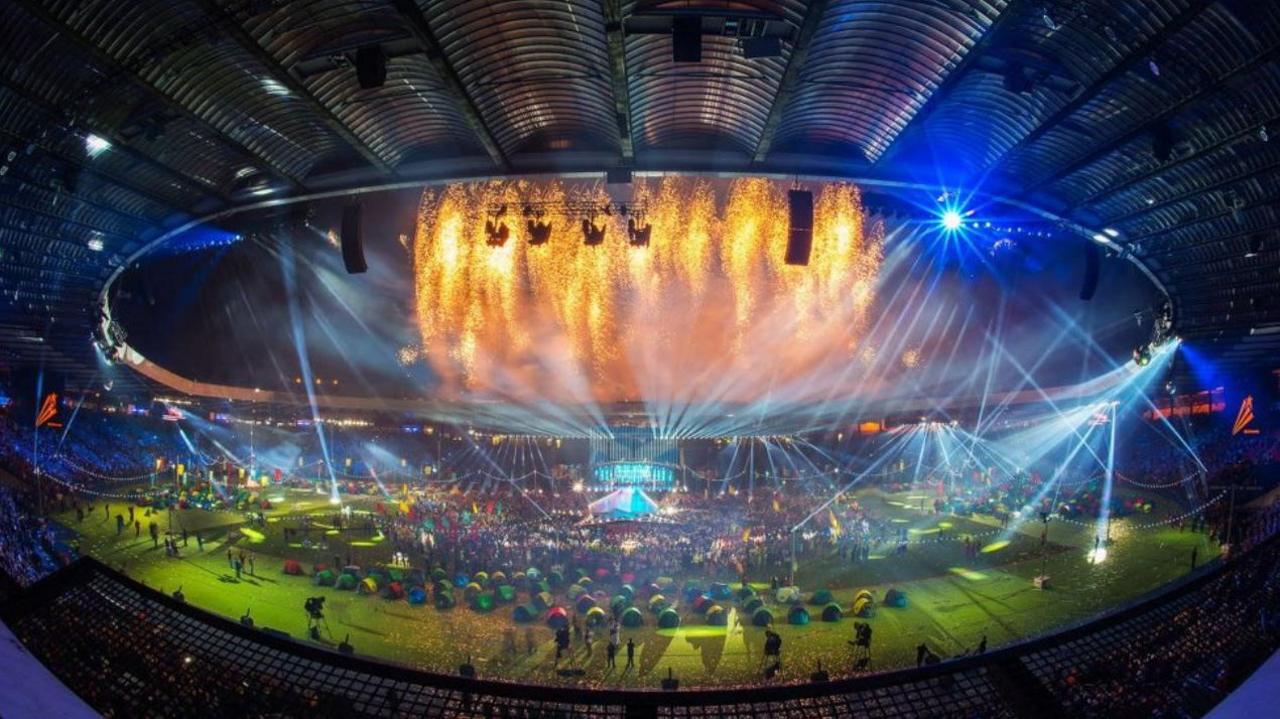Will the Commonwealth Games return to Glasgow in 2026?
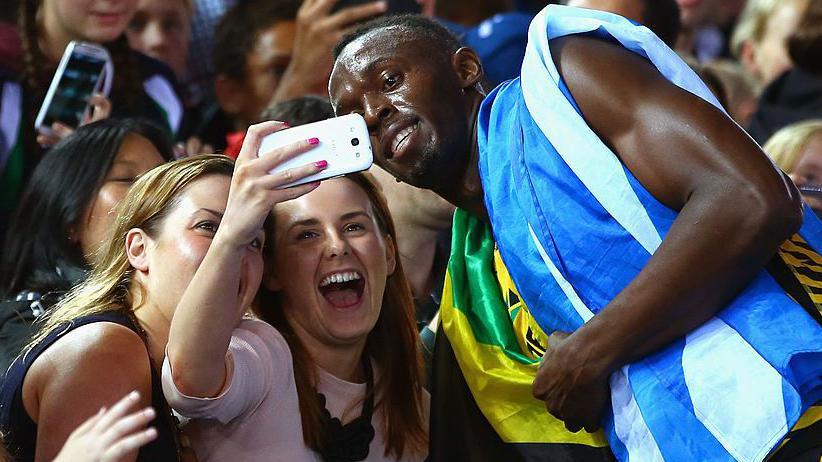
Usain Bolt was one of the big names who appeared in 2014
- Published
A decision is drawing near on whether the Commonwealth Games will return to Glasgow in 2026.
Commonwealth Games Scotland has offered Glasgow as a back-up plan if games organisers cannot find another host nation - 10 years after the city last hosted a Games hailed by organisers as the best ever.
However the cost risk of hosting the event, and the fact it will be a slimmed-down version, has raised questions over whether Scotland should step in or not.
How did we get here?
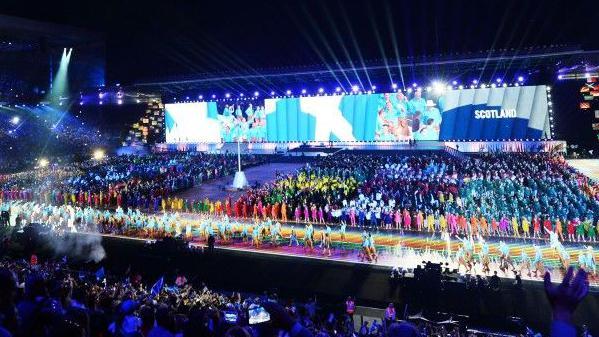
If Glasgow hosts, an opening ceremony like 2014 would be unlikely
The Commonwealth Games has faced considerable difficulty in recent years.
The Australian state of Victoria was due to host the Commonwealth Games in 2026 but pulled out last year due to funding concerns.
The Commonwealth Games Federation (CGF) was furious but were confident another city would step in, particularly as Victoria paid the Commonwealth Games Federation £100m in compensation - money that could be used to attract another host.
However Singapore and Malaysia passed up the opportunity and organisers suddenly realised they could be in trouble.
In early 2024, Glasgow reached out with a proposal designed at saving 2026 and, simultaneously, providing a potential blueprint for a scaled down version of the Games that could ultimately prove more financially attractive to future host cities.
What is the Glasgow proposal?
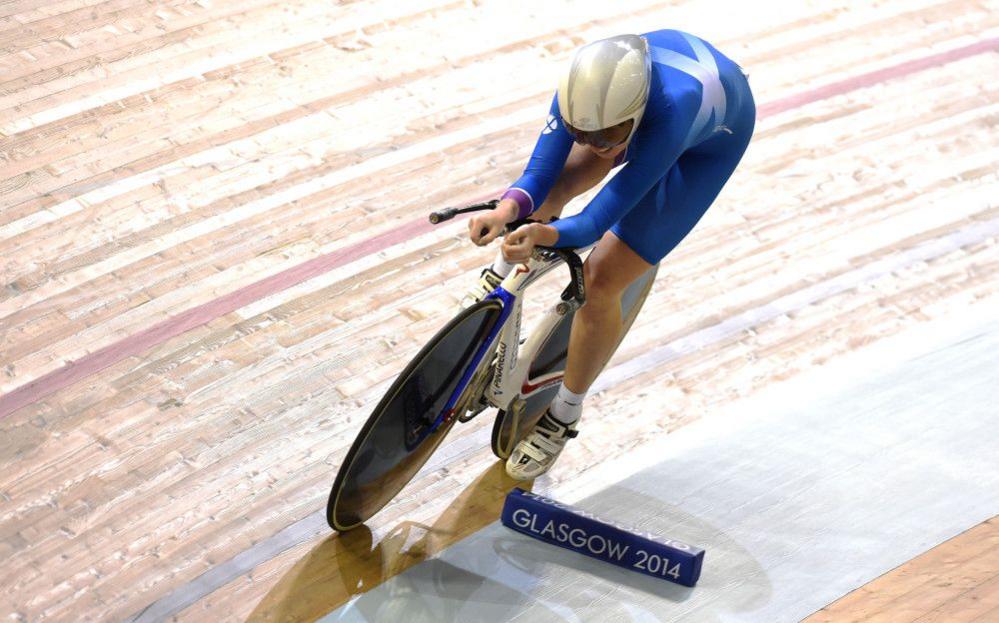
Katie Archibald was one of the home athletes at Glasgow 2014
It would be a Commonwealth Games - but not as we’ve known it in the past.
When Glasgow last hosted in 2014, 7000 athletes competed across 17 sports but this time there would be 10 core sports and fewer athletes.
Athletics, swimming and cycling would be included but it is not yet clear what sports would be cut.
Just four venues would be used, including Scotstoun stadium, which would host the athletics.
There would no athlete’s village and any opening and closing ceremony would be hugely cut back from what has gone before. It would very much be a Games designed to fit Glasgow instead of a Games that would shape Glasgow.
Among athletes there are mixed feelings about this - Games gold medallist Eilish McColgan believes that there "needs to be changes made to the current format" but badminton medallist Kirsty Gilmour told BBC Scotland News that the short time frame to get the Games ready could hamper the atmosphere.
How would it be funded?
The cost of the 2014 edition was around £540m, of which the Scottish Government and Glasgow City Commonwealth paid around £425m.
Commonwealth Games Scotland say the entire event this time would cost around £114m, with a contingency fund of around £25m.
They have been keen to point out that the Games would come at no cost to the public purse with £100m coming from the Victoria compensation cash and the rest made up by ticket sales, broadcasting rights and private sponsorship.
Further investment has now been promised by Commonwealth Games Australia, who have offered to bridge any financial shortfall in a bid to ease any risk.
That money will come from some of the compensation they received when the Australian state of Victoria cancelled its plans.
President Ben Houston said that the organisation wants to "do all that we can to make Glasgow 2026 a reality."
Organisers have also been keen to point out that the entire project would be underwritten by the CGF. They believed that would be enough to entice the Scottish government and Glasgow City Council to back it.
What are those in charge saying?
The Scottish Government has been very careful with their response to questions about the proposal.
They say that dialogue is continuing with the UK Government and the CGF but continue to highlight that no public money is available.
They also point towards what they see as the potential for reputational damage, questioning if a scaled down Commonwealth Games would sit well with the city’s desire to be considered as a natural home for first class sporting events.
First Minister John Swinney also highlighted challenges posed by the time left to arrange a Games. Glasgow 2014 had seven years to prepare but there is less than two years to go until a proposed Glasgow 2026.
Those who are proposing this event say it should be a "no brainer" as it won’t cost the public a penny, but those who need to sign this off don’t seem entirely convinced.
The UK government last week assured the Scottish government that no public money would be required to stage the games.
What’s the delay?
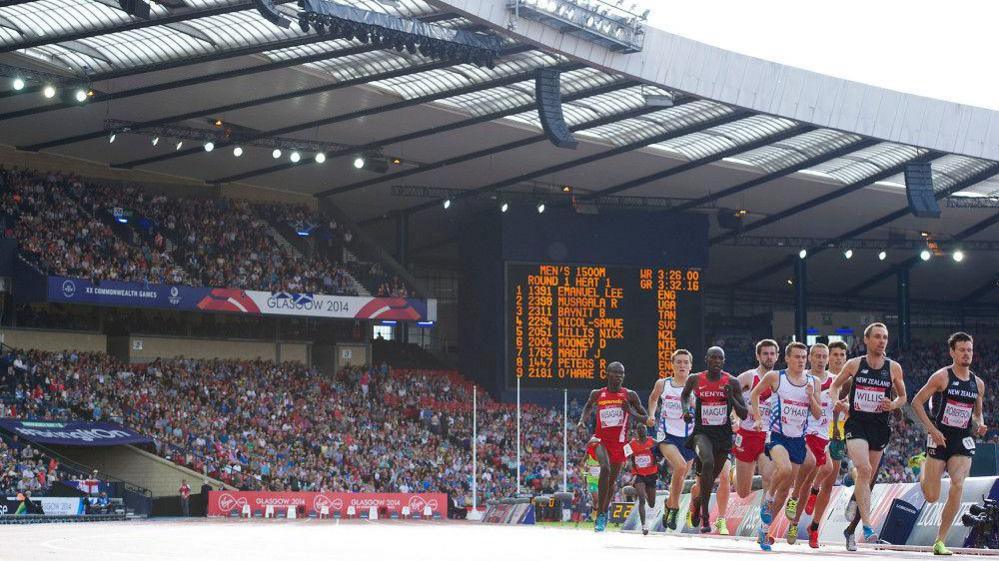
Hampden Park held the track and field events in 2014
A decision was expected in May but it is what’s being said in private that is perhaps more telling than what’s being discussed publicly.
Recent wrangling has been centred around who might underwrite any increase to security if the threat level increases before or during the Games.
BBC Scotland revealed correspondence between the UK government's sports minister Stephanie Peacock and the Scottish government's health minister Neil Gray, where Peacock stated that "an additional contribution of up to £2.3m" could be provided by Westminster.
However, it rejected a request by the Scottish government to underwrite the entire cost of the Games.
Privately they remain confused as to why the Scottish government is still asking questions.
Gray has said there is a "reputation risk as well as financial risk" if Glasgow took hosting duties.
Another consideration politicians in Scotland are weighing up is the cultural relevance of the Commonwealth Games.
Questions have been asked in recent years about the event's links to Britain’s colonial past. Some are saying privately that is reason enough not to provide life support to an event that seems to be slowly dying anyway.
For much of the past several months, those looking for encouraging soundbites from Holyrood needed to dig very deep.
However, BBC Scotland understands that a deal is now on the verge of being struck after the offer of extra investment from Australian authorities.
Health Secretary Neil Gray told Good Morning Scotland it was "more likely" now that Scotland would host the 2026 games than when discussions began.
How likely is it to come to Glasgow?
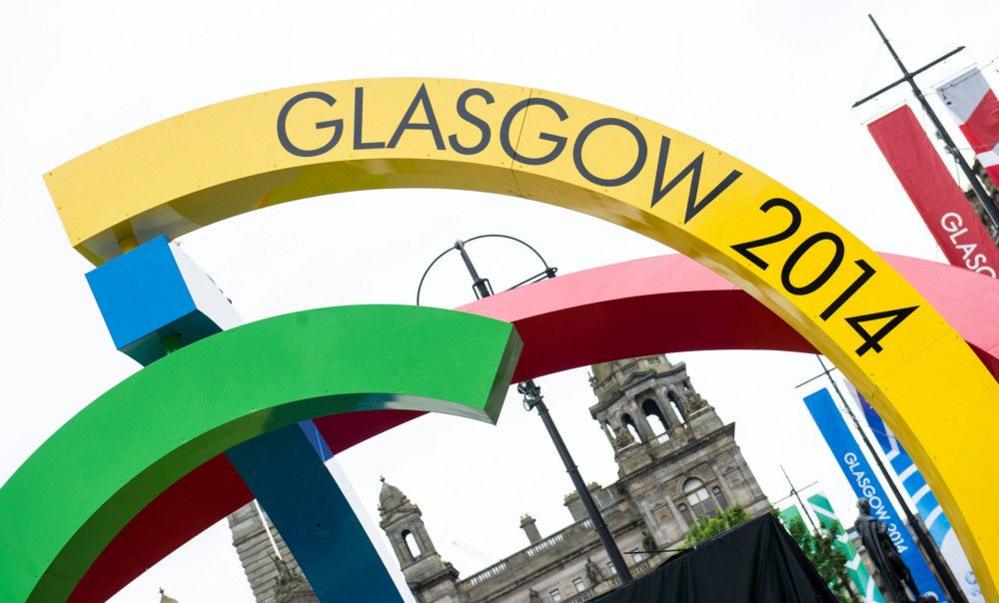
The 2014 Games was successful for attendance
In the summer, Glasgow 2026 looked to be happening. The CGF was confident the Scottish government would show support and get behind a plan to save the games.
As autumn neared without a definitive call, the decision looked to be on a knife edge, and among all the confusion it became clear that there are those who don’t want it.
However, it now appears a deal is set to be struck - even though for some it may well take place through gritted teeth.
Related topics
- Attribution
- Published24 October 2024
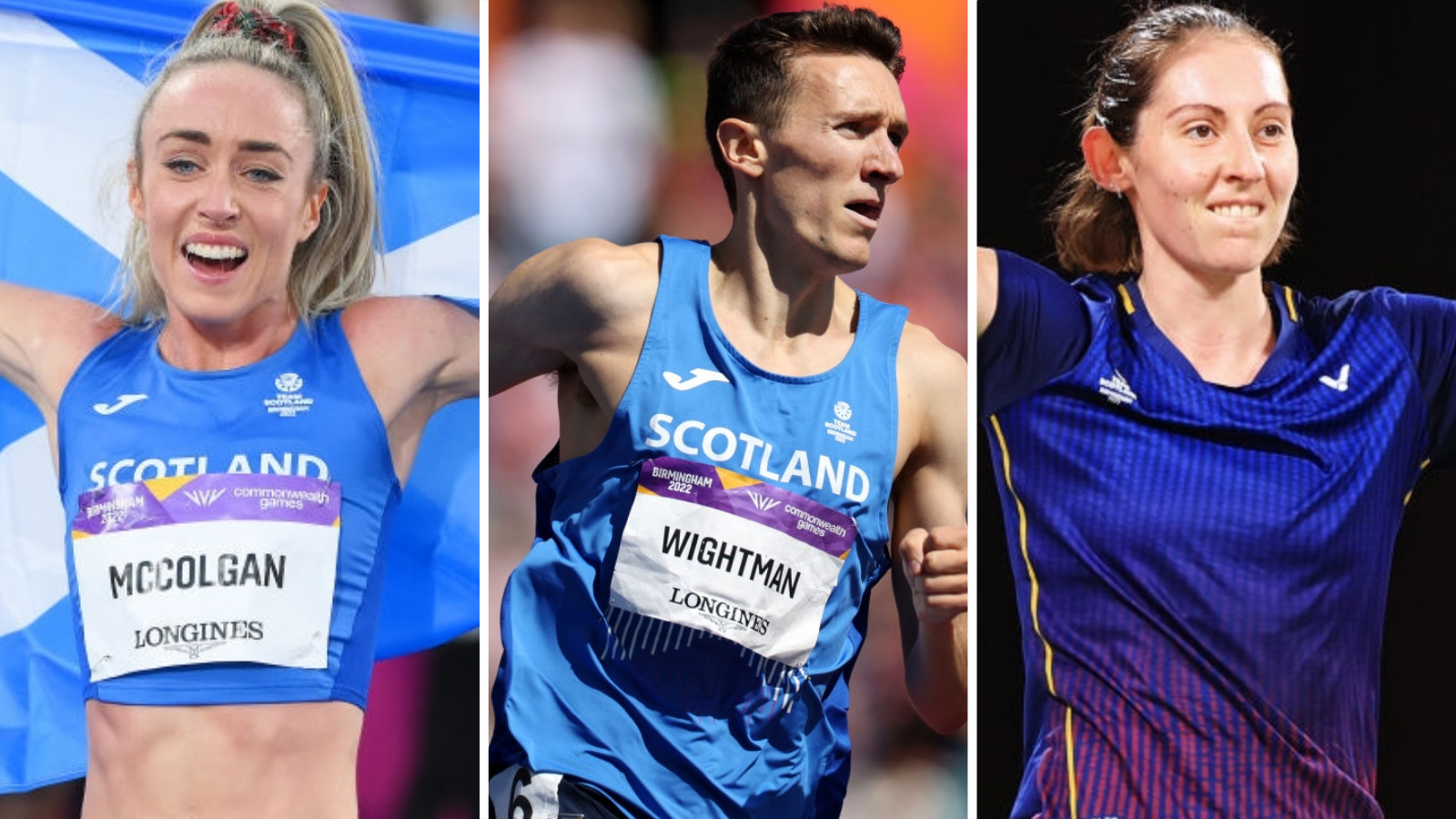
- Published11 September 2024
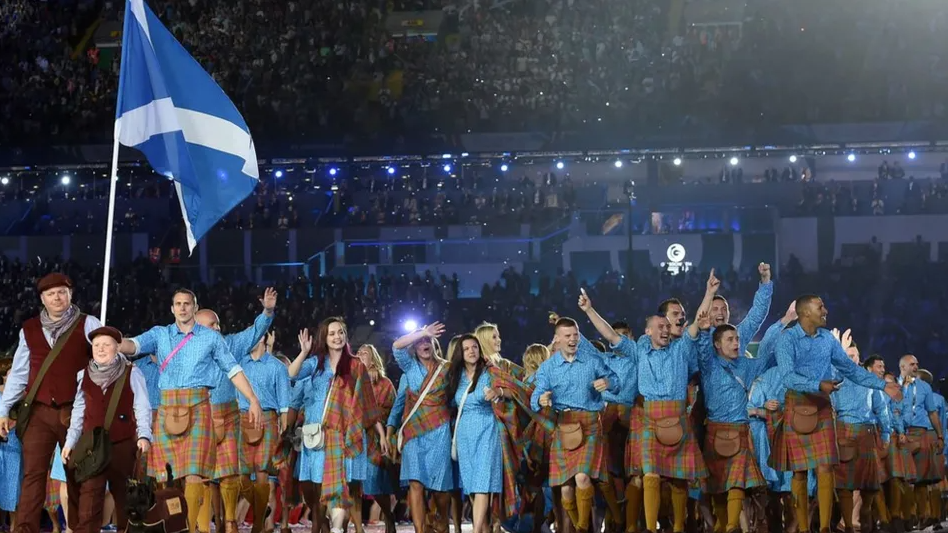
- Attribution
- Published30 August 2024
